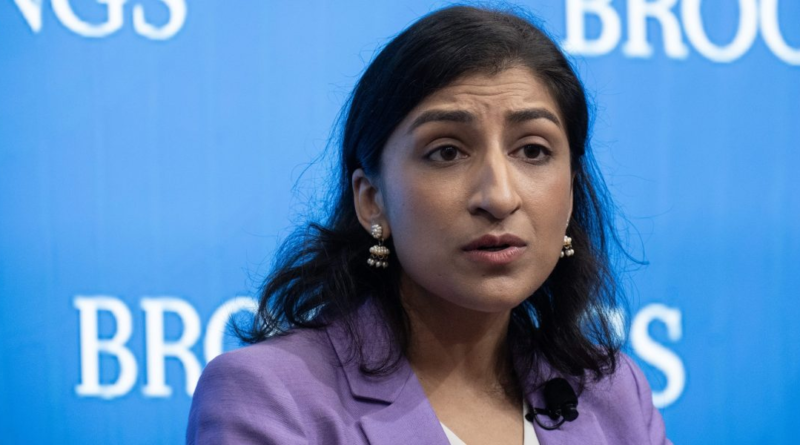After FTC and TurboTax spar over definition of 'free,' agency drops the hammer on Intuit's misleading advertising claims
The Federal Trade Commission Monday took a shot at popular tax filing service TurboTax for “deceptive advertising” and formally banned the company from calling any of its products or services “free” unless they were free for all consumers.
The regulatory agency, led by “competition cop” Lina Khan, wrote in a final opinion and order that the tax software company, a subsidiary of QuickBooks maker Intuit, had violated the FTC Act through ads that touted “free” tax products and services that many customers didn’t actually qualify for. The order upholds a ruling from a chief administrative law judge issued in September.
If TurboTax doesn’t want to make its “free” products available at no charge to all consumers, it can also add clear disclosures about the percentage of customers that actually qualify for the free offerings, the FTC said in the order. If most customers don’t qualify for the free products, the company can also clearly state that and resume advertising, the agency wrote.
It’s another step in the long-brewing battle between the U.S.’s most popular tax-prep company and its competition regulator, which has taken a much stronger line on regulation under President Joe Biden’s administration. Intuit has fought to protect its market-leading position through direct lobbying, marketing campaigns, and even search engine strategies.
A spokesperson for Intuit pushed back on the FTC’s order and said the company has appealed the “deeply flawed decision” to an outside court.
“Absolutely no one should be surprised that FTC Commissioners—employees of the FTC—ruled in favor of the FTC as they have done in every appeal for the last two decades,” spokesperson Derrick L. Plummer wrote in a statement to Fortune. “This decision is the result of a biased and broken system where the Commission serves as accuser, judge, jury, and then appellate judge all in the same case.”
Meanwhile, the Internal Revenue Service is close to rolling out a free system for filing taxes directly with the government, despite pushback from tax preparation companies. The new no-cost tax filing program will be available later this year to certain tax filers in 12 states.
A history of lobbying
TurboTax parent company Intuit has long fought against any IRS initiative to offer taxpayers a free tax filing option, as most other developed nations do, and called the IRS’s recent efforts a “half-baked solution.”
An agreement TurboTax, rival H&R Block, and other preparers signed with the government back in 2002 expressly banned the IRS from offering a free tax-filing option that would compete with private preparers. The industry continues to argue that the government should not compete with the private sector in that space.
However, private preparers fell far short of their stated goal to reach 70% of Americans via the “Free File” program, with no more than 3% of taxpayers using Free File in the most recent year it was available. That’s by design, according to nonprofit media organization ProPublica, which in 2019 published an investigative series claiming that TurboTax pushed consumers searching for a free tax filing option toward paid products, going so far as to hide its IRS Free File landing page from Google search results.
Based on publicly available data, ProPublica estimated that TurboTax’s practices brought in about $1.5 billion in revenue from 15 million people who could have instead used the no-cost IRS Free File program. The company no longer participates in the IRS Free File program, although certain users can use its software for free.
In 2022, millions of Americans became eligible for restitution payments from a $141 million settlement Intuit reached with attorneys general from all 50 states and the District of Columbia following an investigation into its business practices. The company did not admit any wrongdoing as part of the settlement and said it “agreed to pay $141 million to put this matter behind it.”
As part of the settlement, the company also had to agree to change its business practices by “refraining from making misrepresentations in connection with promoting or offering any online tax preparation products,” and enhancing the disclosures on its “free” products, according to a press release from New York Attorney General Letitia James.
Despite the reforms Intuit made following the state settlement, the FTC argued in its Monday order that there are gaps in the settlement and that a number of its ads “remain deceptive in one way or another.”
“Even with changes to Intuit’s ads and the requirements of the State Settlement, and despite Intuit’s claims that it does not intend to deceive taxpayers, we find that there is a likelihood of recurrent violations. Consequently, an order is warranted,” the FTC wrote in the order.


